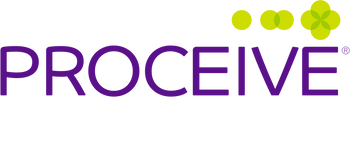What is Polycystic Ovarian Syndrome (PCOS)?
PCOS is one of the most common endocrine disorders in women, affecting around 1 in 5 of child-bearing age. It is a varied condition with a wide spectrum of clinical presentations. Typical features may include:
-
Irregular or absent menstrual cycles
-
Acne
-
Ovarian cysts (detected on ultrasound)
-
Obesity or difficulty managing weight
-
Infertility
-
Hirsutism (excess hair on the face and body)
Not every patient will present with all features, which can make diagnosis challenging.
What Causes PCOS?
PCOS is an insulin resistance syndrome. In affected women, this means the body is ignoring the insulin it normally produces. When this happens, the body produces more and more insulin, leading to high overall insulin levels.
Persistently elevated insulin can:
-
Contribute to weight gain, which is common in PCOS
-
Cause the ovaries to produce more testosterone than normal
The high level of testosterone can trigger a reaction in the body that can disrupt ovulatory function, contributing to irregular cycles and the development of ovarian cysts.
The Role of Nutrition and Lifestyle
Low Glycaemic Index (GI) Diet
Dietary management is a cornerstone of PCOS care. A low GI diet can help reduce insulin resistance by stabilising blood glucose levels. Carbohydrates with a lower GI produce smaller glucose rises, minimising insulin secretion and supporting hormonal balance.
Key recommendations include:
-
Emphasising wholegrains, legumes, vegetables, and high-fibre foods
-
Reducing intake of refined carbohydrates and added sugars
-
Aiming for a balanced, sustainable diet with an optimal BMI (18.5–25)
Exercise
Regular physical activity enhances insulin sensitivity and is recommended for all women with PCOS, regardless of BMI. Both aerobic and resistance training can provide metabolic and reproductive benefits.
Supplementation: The Role of Myo-Inositol
Beyond diet and lifestyle, evidence supports a role for specific supplementation in managing PCOS.
Myo-Inositol, a naturally occurring compound, has been shown to:
-
Improve insulin sensitivity
-
Support ovarian function and restore ovulation in some patients
-
Lower circulating androgen levels, which may reduce acne and hirsutism
-
Enhance oocyte quality, with potential implications for fertility outcomes
Supplementation with myo-inositol is generally well tolerated and can be considered as an adjunct to dietary and lifestyle interventions. Other nutrients such as vitamin D and folic acid are also important.
Summary for HCPs
PCOS is a multifactorial condition with insulin resistance at its core. Nutrition and lifestyle modification remain the first line of management, with low GI dietary approaches and regular exercise central to improving metabolic and reproductive outcomes. Supplementation, particularly with myo-inositol, may provide additional benefit in improving ovulation, reducing hyperandrogenic symptoms, and supporting fertility.

